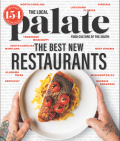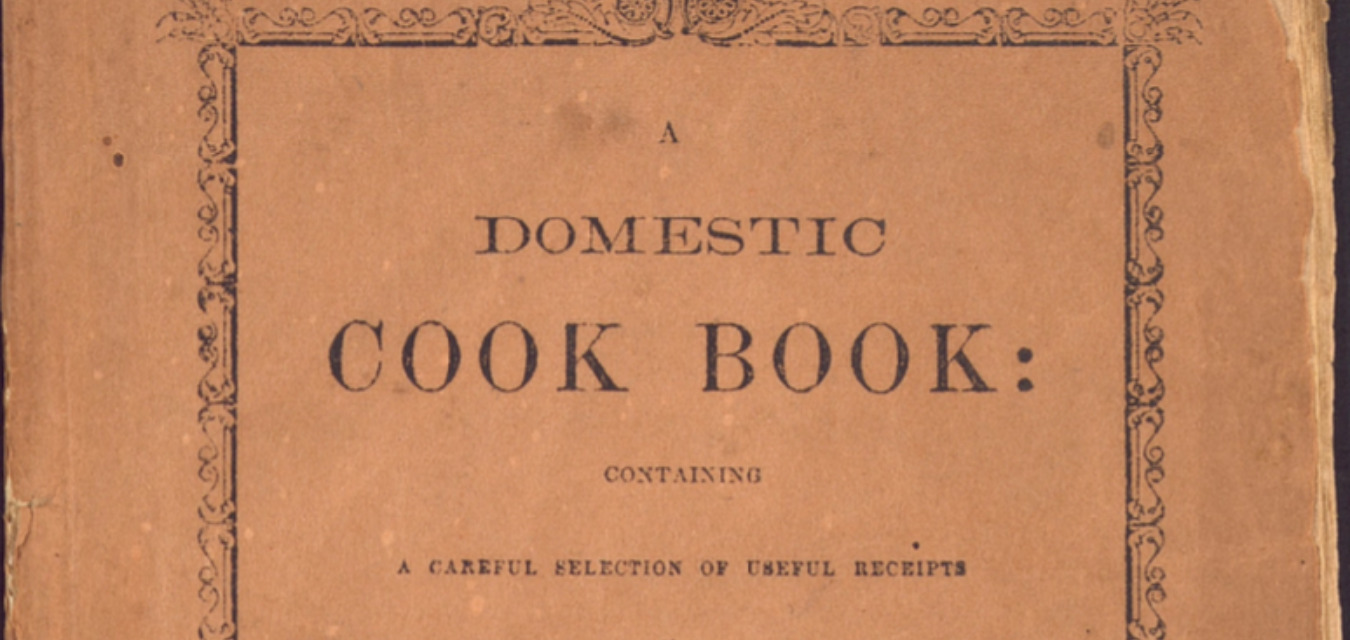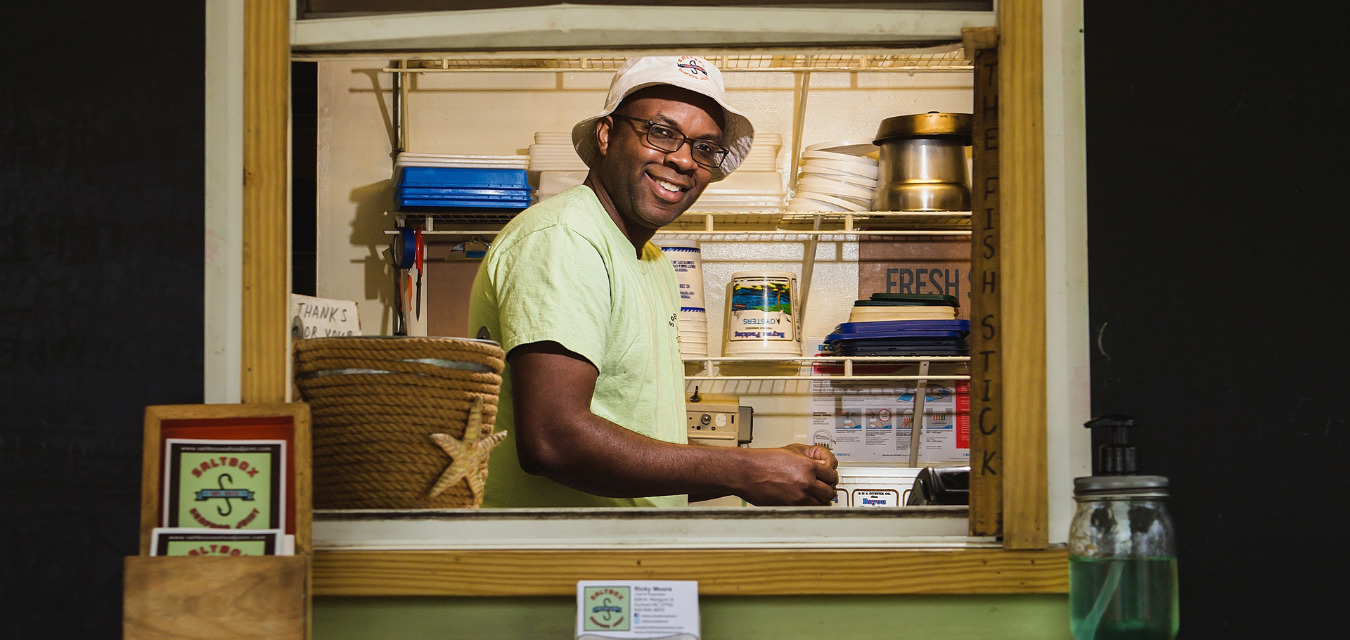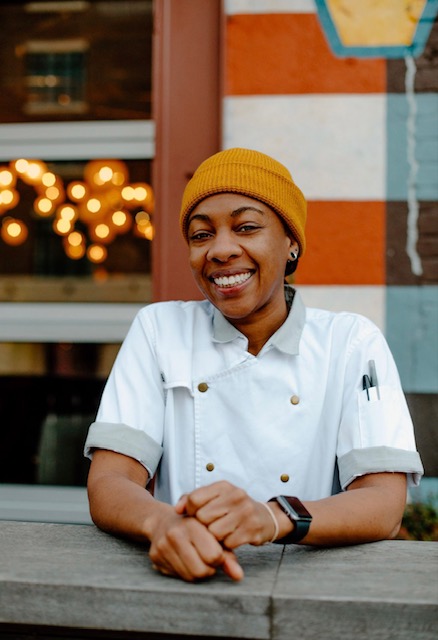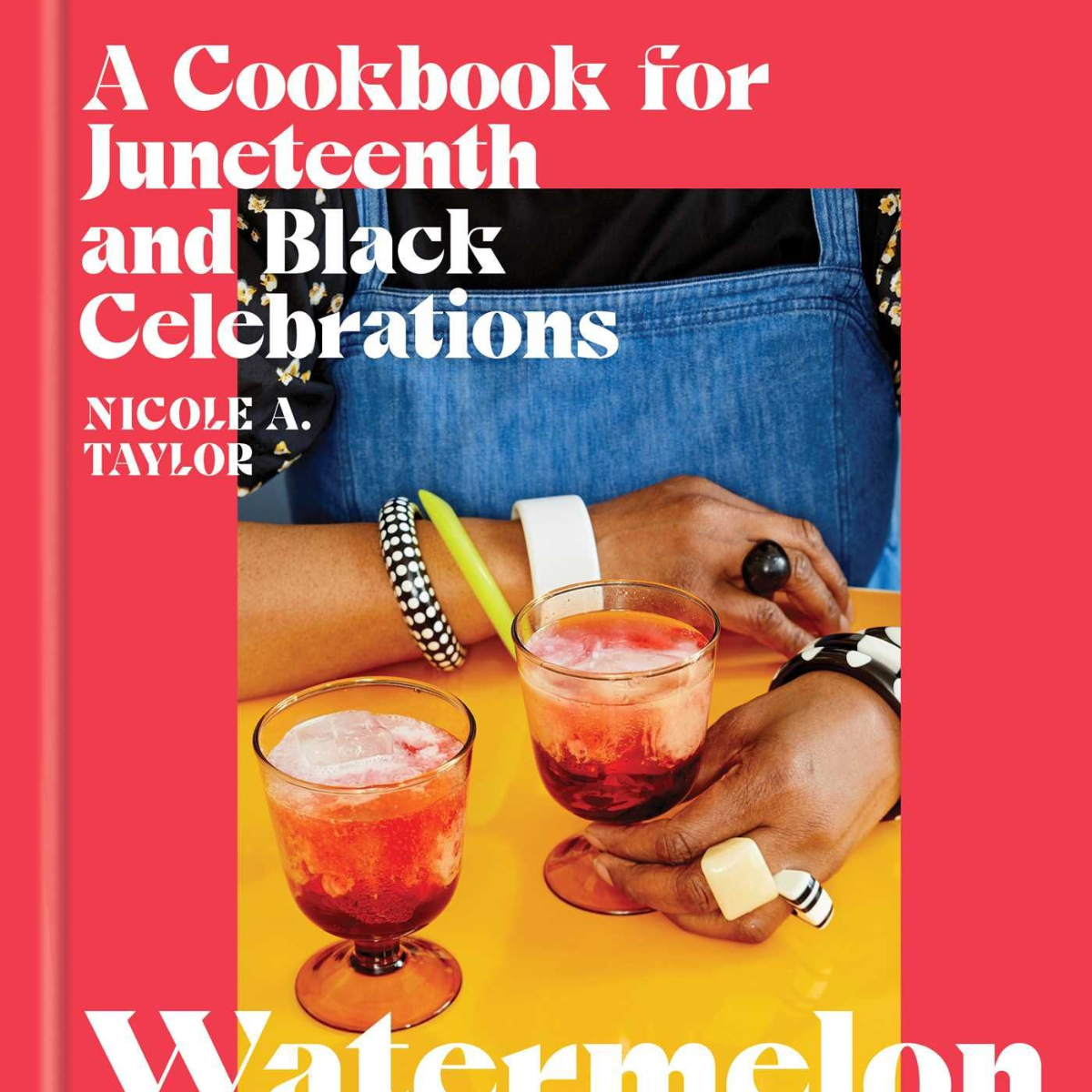Sharing the life and story of Malinda Russell, the first Black woman cookbook author, through cooking her recipes
In 1866, a woman by the name of Malinda Russell self-published A Domestic Cookbook: Containing a Careful Selection of Useful Receipts for the Kitchen. At the time she was living in Paw Paw, Michigan, where she fled after being robbed by a “guerrilla party,” and selling copies of her book to raise funds to return to her home state of Tennessee. Russell and her book were largely lost until around 2000, when cookbook collector Jan Longone uncovered A Domestic Cookbook and quickly identified Russell as the earliest Black female cookbook author.
Russell’s 39-page book subverts the preconceived trope of “rustic Southern ‘soul food’” that’s associated with many historic Black recipes and cooking traditions. Through recipes for fricasseed catfish, beef suet, and floating islands, Russel demonstrates how a life of travel and her pursuit of culinary expertise—from cooking under authority Fanny Steward and studying books like The Virginia Housewife (1824) by Mary Randolph—influenced what a New York Times article calls “complex, cosmopolitan food inspired by European cuisine.”
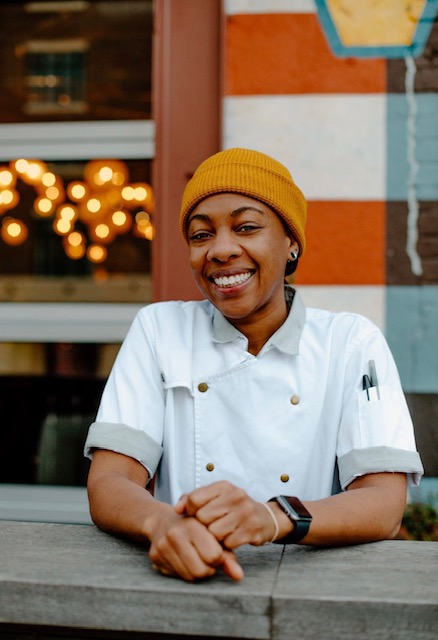
“I think what’s most unexpected [about A Domestic Cookbook] was how well traveled and inspired these recipes are,” says chef Ashleigh Shanti. Malinda Russell doesn’t give any indication of having traveled abroad, but she immediately establishes her authority at the beginning of the book, writing, “I have made cooking my employment for the last twenty years in the first families of Tennessee, Virginia, North Carolina, and Kentucky. I know my recipes to be good, as they have always given satisfaction.”
To this day, Malinda Russell is far from a household name. In an interview with Eater about Russell’s legacy, cookbook author and culinary writer Toni Tipton-Martin says, “The precision of French-classic [culinary] technique has been the bar of success. It’s established that that’s where the knowledge is, in the formalized training of what started as domestic science, and now we think of it as just culinary academy work. Black people were left out of that conversation, and that’s why their cookbooks matter so much, because there was no other evidence that they could function in the same capacity as professionals.”
Chefs like Shanti are working to carve out a place of reverence for icons like Russell. “People, especially folks in the food industry, with experience feeling marginalized have done a great job stepping forth as torchbearers to make sure these stories and traditions are preserved and told,” she says.
Shanti’s style of Black Appalachian cuisine preserves old cooking techniques of enslaved and freed people who cooked in the Appalachian Mountains in North Carolina, Virginia, and Tennessee—practically overlapping with where Malinda Russell lived and worked 150 years ago. In her previous position as the executive chef at Asheville restaurant Bene on Eagle, Shanti used A Domestic Cookbook (her copy gifted to her by Appalachian food writer Ronni Lundy) for research and inspiration as she created dishes for the menu.
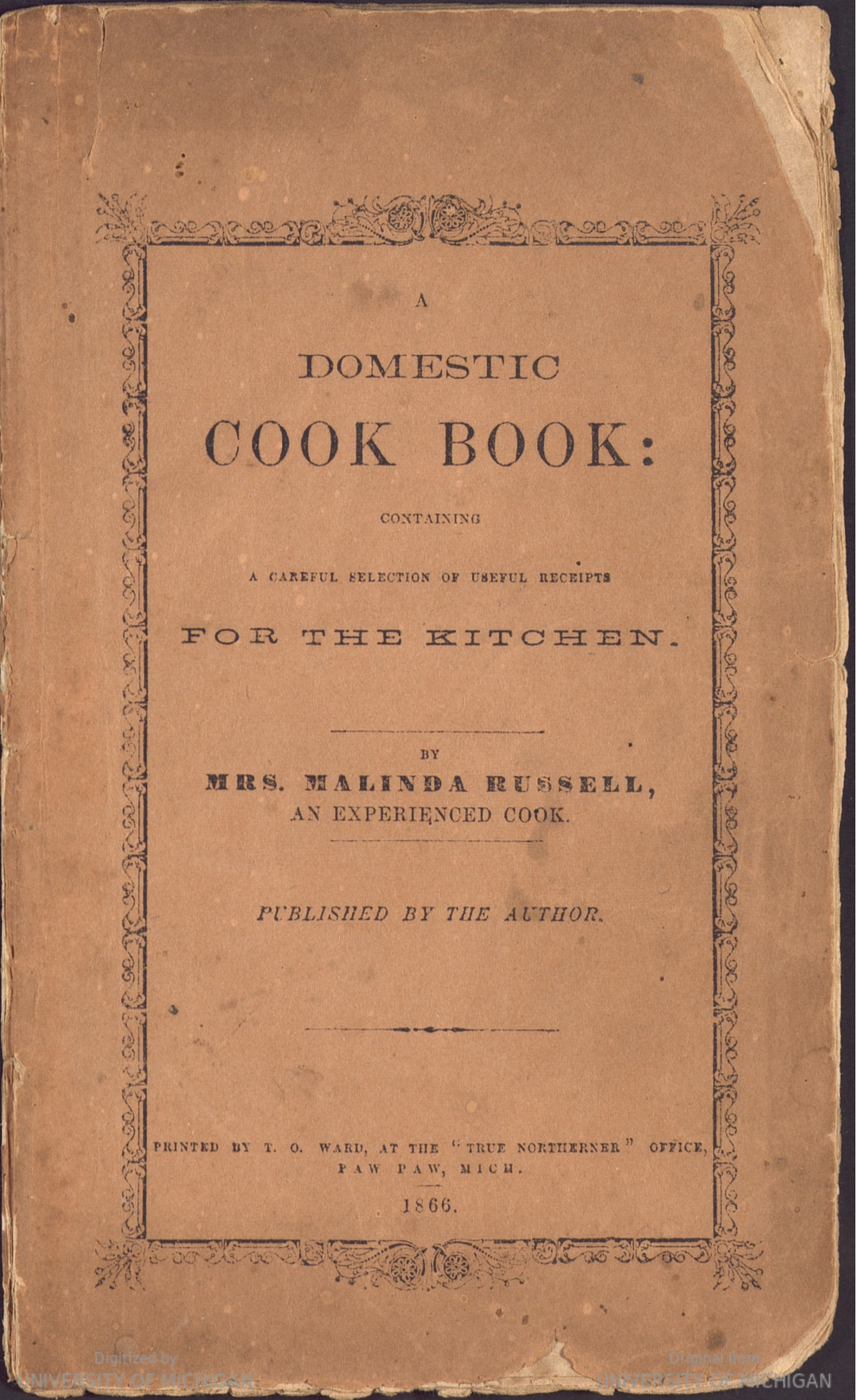
In 2022, the event organizers of Chow Chow, an Appalachian food and culture festival, approached Shanti about bringing Russell’s recipes to life with a coursed dinner dedicated to her cookbook. She was immediately in: “I loved the name [The Mystery of Malinda Russell] because she’s so underrated, and maybe it’s a time period thing, but she’s the first Black published woman chef! I think that’s powerful and inspiring, and it’s surprising more people don’t know about her.”
Shanti’s deep familiarity with A Domestic Cookbook made this dinner easy, she says. Shanti got to work finding local chefs to prepare each of the four courses, teaming up with Michelle Bailey, Rakim Gaines, Steve Goff, and Ashley Capps. “I approached it from the standpoint of teaching others about her work,” she says. One crucial component was the assistance of the local culinary students from Asheville Tech. One of Shanti’s favorite parts was “being able to teach them about her life and culinary standpoint and the lens in which she created these recipes and the way we modernized these recipes—that the research really comes from the execution.”
Shanti assigned each chef a course, made suggestions about what she thought would make a good vegetable course or a good dessert course, and helped with the research and development of each recipe: “I wanted to take the guesswork out of it.” They landed on Malinda Russell’s dressed okra along with salt-rising bread with ripe pickled tomatoes for passed appetizers, followed by onion custard with grapes and herbs, catfish fricassee, terrine stuffed pastry, and allspice cake.
Shanti calls Malinda Russell’s recipes “blueprints” for the cook’s own creativity, explaining that skeleton instructions that give cooks the ability to insert their own stories into a recipe provides a timeless execution. She adds, “I think that’s a large part of Malinda Russell’s story and creativity—being able to insert herself into [these recipes].” For example, Shanti’s spin on Russell’s dressed okra included a homemade Kitchen Pepper butter with farmers cheese, ripe tomato pickles, and sturgeon caviar, served on salt-rising bread made by pastry chef Ashley Capps. Shanti followed the recipes for the okra and tomato pickles exactly—her only flair was playing up the toppings.
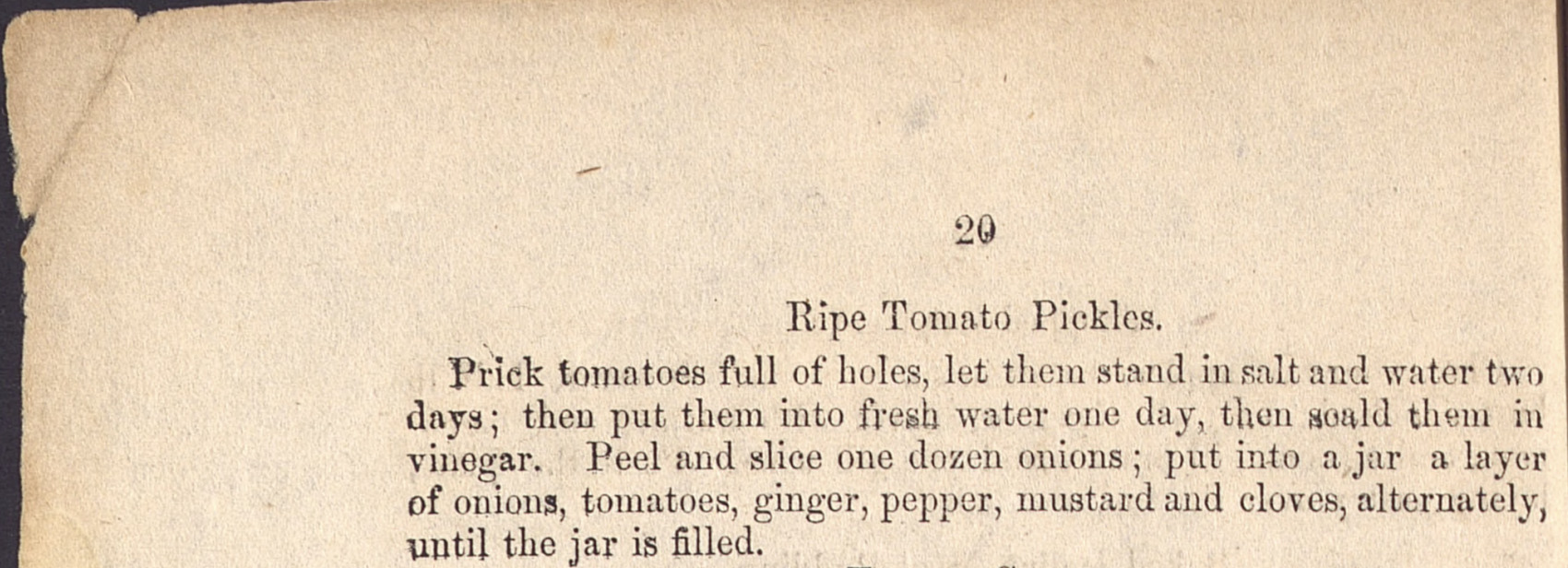
She notes that Russell’s recipes were written “for women who knew their way around a kitchen.” Russell—who owned a bakery as well as a boarding house—would instruct readers, “Bake quick, but do not scorch,” or omit baking instructions entirely for her cookies and cakes, assuming that her readers knew the time and temperature needed to create her soft gingerbread or white mountain cake. Shanti likens them to recipes she might write on a Post-It note and pass off to a cook before dinner service. She says that leading the culinary students through the execution of these recipes meant they learned by doing. “They learn styles and techniques that are Malinda Russell-esque.”
Shanti is proud that bringing Malinda Russell’s recipes to life meant “everyone walked away with a solid knowledge of her work,” and took another step toward furthering her goal of “making sure these stories and traditions are preserved and told.”
Click here to view a full PDF of Malinda Russell’s A Domestic Cookbook.
Keep Reading
Roots
Ricky Moore’s Juneteenth Lunchboxes
With Juneteenth coming up, chefs in Durham, North Carolina, sought out a way to make sure no one shows up empty handed to this year’s cookout.
Partnered
Ashleigh Shanti’s Appalachian-Soul Thanksgiving
Ashleigh Shanti shares how her culinary background is inspired by generations of women in her family, one key tradition being the use of Duke’s Mayonnaise.
Bookshelf
A Juneteenth for the Twenty-First Century
Nicole Taylor debuts Watermelon & Red Birds in time for Juneteenth 2022 with 75 recipes and stories that honor Black traditions and celebrate future generations.
share
trending content
-
New Restaurants in Arkansas
-
Shrimp and Grits: A History
by Erin Byers Murray -
Tea Cakes, A Brief History
by TLP Editors -
Gullah Geechee Home Cooking
by Erin Byers Murray -
A Cajun Christmas Menu
by TLP Editors
More From Roots
-
The Pakalachian Food Truck Blends Traditions | Listen
-
Treasuring Time at the Table at a’Verde
-
Ricky Moore’s Juneteenth Lunchboxes
-
Hamsa: All Roads Lead to Israel
-
Sophina Uong Embraces Chinese to Cajun Influences at Mister Mao
